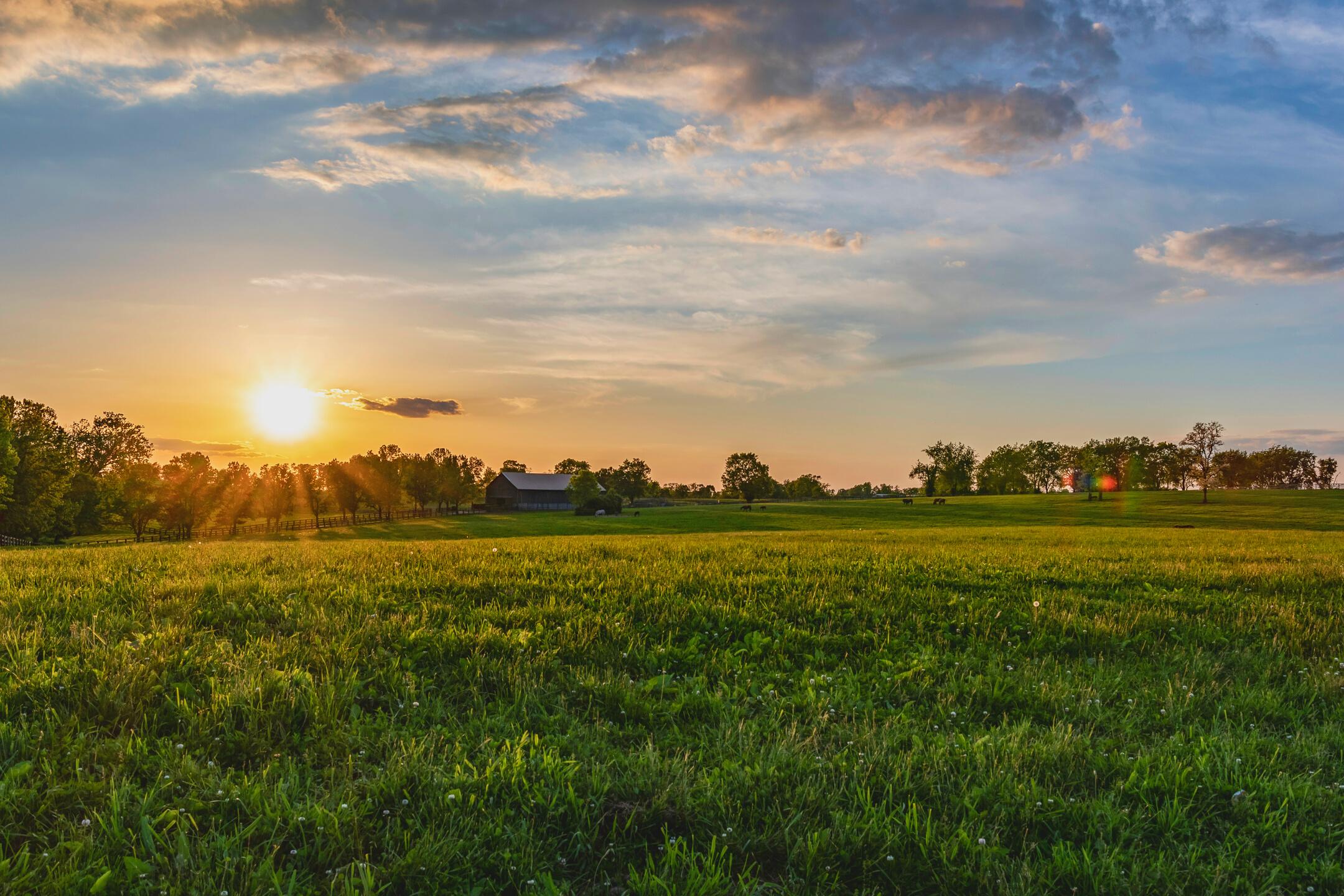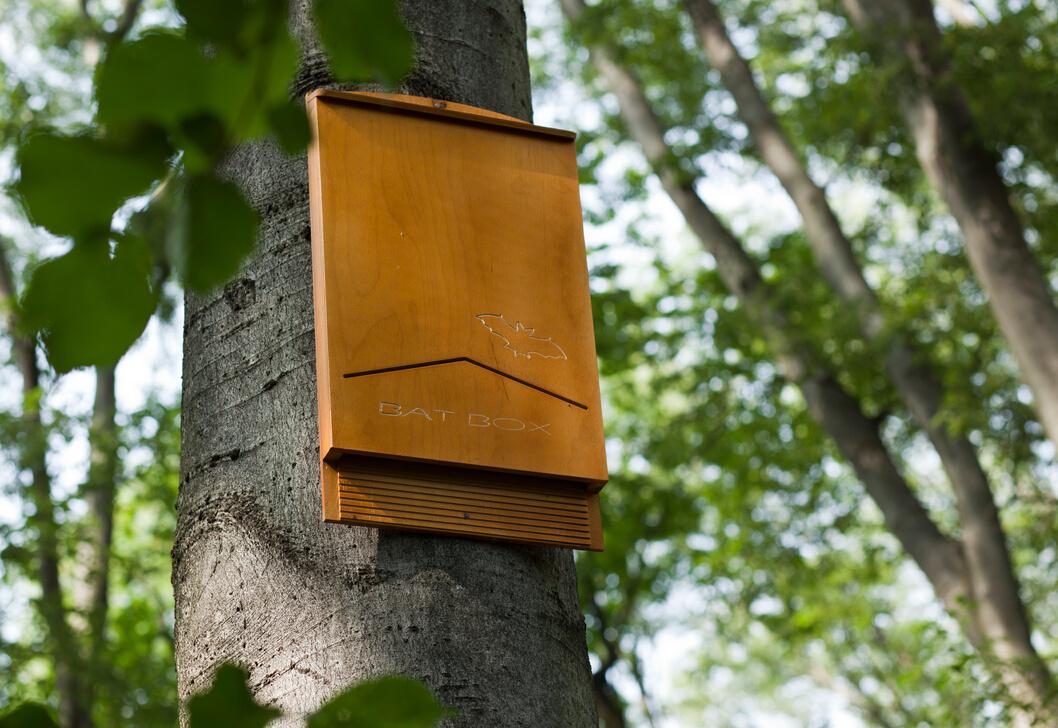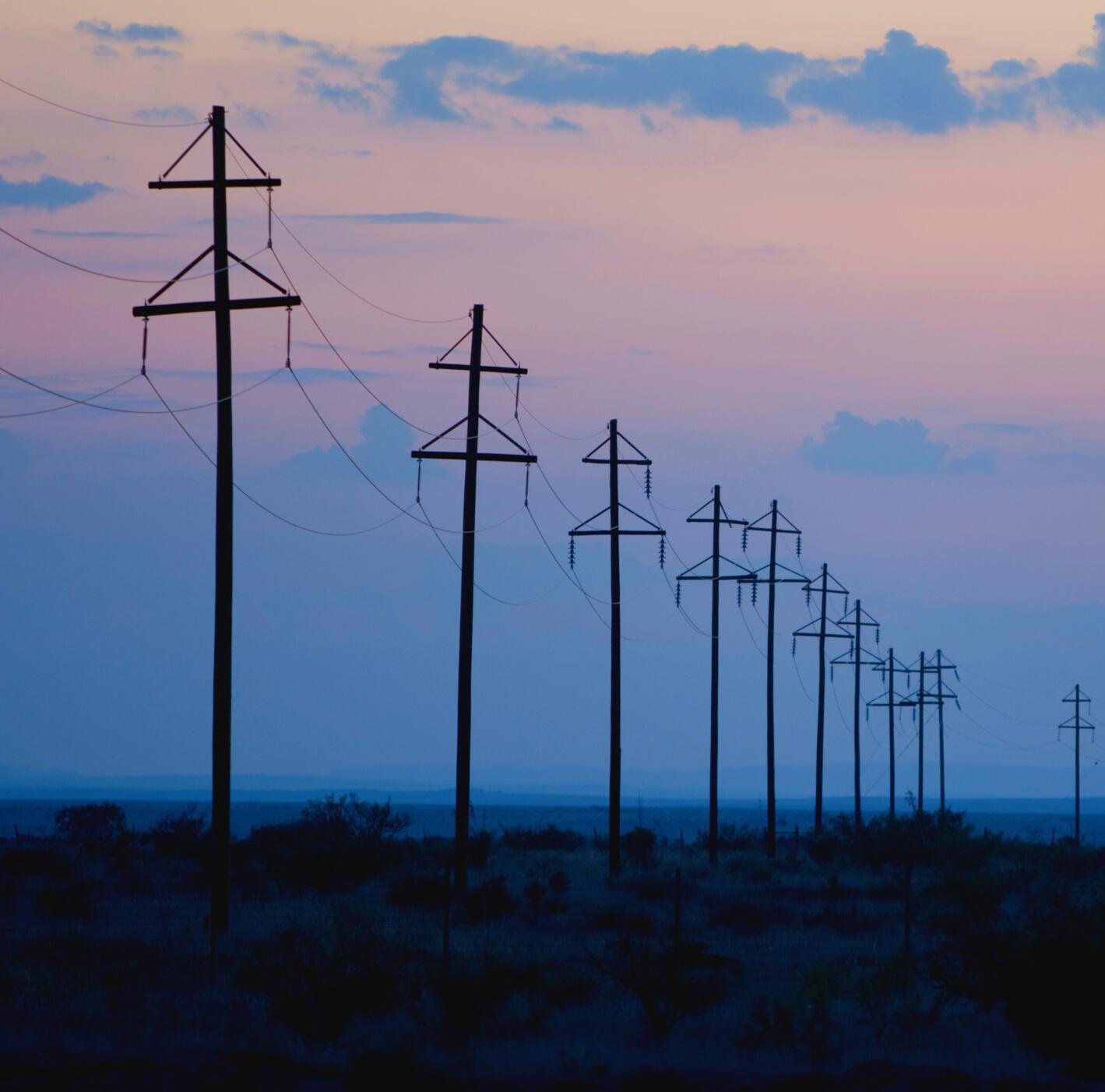










As I reflect upon 2022, I am filled with gratitude for the support you have shown me during my first year as director of the Kentucky Resources Council and for the opportunity to build on the Council’s legacy of environmental protection. Although this year was marked by change, one thing remains constant – the Council still "stands the gap,” as it has since 1984, by providing unflinching advocacy in pursuit of environmental health and justice for all Kentuckians.
Because of your generosity and continued support, we expanded our reach this year, providing more than $1.5 million worth of legal services across the Commonwealth, a 26% increase from last year. We tackled a wide range of environmental and energy issues, including pollution from industrial animal feeding operations, coal ash contamination, gas pipeline impacts, and protection of endangered species. We’re also representing a coalition of allies in rate and planning cases before the Public Service Commission, working towards more sustainable, just, and affordable energy for ratepayers.
As you read the highlights in our 2022 Annual Report, know that we could not have done it without you. You enabled us to go before courts and the legislature to protect the Commonwealth’s natural resources and communities; to inform and empower Kentuckians and fight alongside them for environmental justice; and to hold our government accountable. Thank you for your support.
Many challenges and opportunities await us in the new year, and we are ready to meet them. We will also soon be introducing our new program that we’re calling Good Trouble, in honor of the late John Lewis: a multi-year, multi-stakeholder initiative that will combine meaningful citizen participation, science-backed information, and technical and legal expertise to ensure that Kentucky’s environmental decisions are protective of public health and the environment.
Thank you for being a part of what makes the Council work. We hope you continue to share our passion and urgency in protecting Kentucky’s land, air, water, and people.
With gratitude,

JULY 1, 2021-JUNE 30, 2022
Revenue
$431,970.91
We successfully fundraised for additional revenues to cover the overlapping period of our founding director, Tom FitzGerald, with our current director, Ashley Wilmes.
Programs

$268,590.72 73% of expenses
Environmental & Community Defense $231,320.14
As we have since 1984, the Council has stood before courts, local governments, agencies, and the legislature, working to safeguard Kentucky’s natural resources and fighting for environmental health and justice across the Commonwealth.
Center for Environmental Policy
$32,358.39
We developed proactive policies and proposed laws and ordinances to promote the health of our communities and environment. During the 2022 General Assembly, we advocated on issues including utility service affordability, funding for regulatory agencies, and opposing weakening of controls on odors and wastes from industrial hog operations.
Kentucky Education Leadership Institute $4,912.19
We partnered with five outstanding speakers this year to present free virtual community workshops, designed to give citizens tools to better protect the places they live and love.
These costs include technological services, bookkeeping, onboarding of our new Director, strategic plan development, and other services that support our program work. Operating $49,317.02 13% of expenses
$50,321.84 14% of expenses
We connect with our members and local communities through events, fundraising, outreach, and development.
Net Assets $185,598.77 end of FY2022
Endowment $112,915.56
Our endowment, the Kentucky Resources Foundation, operates through the Bluegrass Community Foundation to support our future work. Gifts made to the endowment provide long-range support and enhance stability for the organization.
$1,520,892
The market value of legal services we provided in 2022, in advocacy of those who live downhill, downwind, and downstream.
183
Number of registrants for KRC's digital webinars.
76
KRC took a formal position on 76 environmental & energy bills during the 2022 Kentucky General Assembly.


KRC testified before legislative committees on 16 of those bills.
In other words...
These cases impact all in Kentucky, from Paducah to Pikeville. Our involvement in these cases is crucial to staving off environmental abuses threatening us today and tomorrow.
8
Number of statewide legal cases on the 2022 KRC docket.
Throughout 2022, the Council laid the groundwork for our new initiative, launching in early 2023, which will combine meaningful citizen participation, science-backed information, and technical and legal expertise to ensure that Kentucky’s environmental decisions are protective of public health and the environment.
Working with allied organizations and supported by technical and legal experts, we are designing a comprehensive environmental permit review training program for citizens. This project will, for the first time, provide the resources to empower the public in the manner intended by our nation’s environmental laws.
We will provide the resources needed for citizens to understand the various permitting and compliance processes, so they may become adept in conducting permit reviews, in advocating for more stringent controls and accountability mechanisms in permit decisions, and in monitoring the compliance of various industrial, commercial, and institutional pollution sources.



We will partner with our network of scientific experts and educational institutions to provide the public with the scientific background and data necessary to meaningfully engage in environmental decision-making.
We will provide legal and technical support for public comments and when needed, our network of lawyers will seek administrative and judicial remedies to ensure compliance with permits and with the environmental laws designed to protect Kentucky’s citizens, communities, the environment, and our climate.
Work has already begun! Thanks to tremendous support from our friends, we have hired our first full-time staff member dedicated to launching this new program. Our Special Project Coordinator will build the framework for tracking hundreds of bills, creating a training system, and coordinating our partners.
If you are interested in financially supporting this new program or participating in its work, email Amy Carpenter, Special Project Coordinator, at amy@kyrc.org.
Thanks to the work of the Council and our allies, the Transmission Pipeline Project that would cut through Forest and neighboring residential properties is curre following the U.S. Fish and Wildlife Service’s announc will take a new look at impacts of the project on thre bat species. The move responds to a letter sent by th the Center for Biological Diversity, which gave forma the Service and the U.S. Army Corps of Engineers of o sue the agencies for violating the Endangered Specie connection with their failure to ensure that construct gas pipeline will not jeopardize endangered bats.
No construction may begin until the Service complet The Council also represents Bernheim in challenging other authorizations for this irresponsible pipeline pr


The Council continues to fight against industrial-scale animal feedlot operations that pollute surrounding land, air, and water We represent a pumpkin farm business and its farmstead owners in Southwest Kentucky as intervenors in a pending administrative case in which the Energy and Environment Cabinet proposed to revoke a permit for an industrial hog operation in Graves County because it was too close to the farm and pumpkin operation. The Cabinet agreed with us that the permit was properly revoked and that a nutrient management plan was required to be part of the permit application. We are now defending that decision before the Franklin Circuit Court, on appeal by the hog operation proponent. Unfortunately, conflict between industrial-scale animal feeding operations and the protection of nearby land uses and the environment is a problem in many rural areas in the Commonwealth.
The Council is also representing a neighboring landowner as an intervenor in an administrative enforcement procedure against a large-scale hog farm near Owensboro for violating its nutrient management plan and odor regulations. Industrial-scale animal feeding operations can have significant negative effects on Kentucky's rural communities, as has been documented both in the literature and in Kentucky's experiences. The Council continues to support farmers and communities in their fight for healthy agricultural practices, responsible and sustainable animal husbandry practices, and prudent use and protection of our Commonwealth's land and water resources.

The Court of Appeals decision in Stuff Properties v. Winchester/Clark County Board of Adjustments affirmed the decision of that Board that a scrap recycling operation conducted by Stuff on property in the City of Winchester had unlawfully physically expanded the footprint of the business onto a second property.

The Council represented Tresa Bridges, who was a complainant whose inquiry into the legal status of that facility resulted in the issuance of the determination challenged by Stuff. The decision reaffirms that under Kentucky's zoning laws, a non-conforming use can continue but cannot physically expand.

The Council is advocating for clean, renewable, and affordable energy before the Kentucky Public Service Commission (PSC). We represent the “joint intervenors” – Mountain Association, Kentuckians for the Commonwealth, and the Kentucky Solar Energy Society, and in one case the Metropolitan Housing Coalition – in integrated resource plan (IRP) cases filed by Louisville Gas and Electric and Kentucky Utilities (LG&E/KU) and Eastern Kentucky Power Cooperative (EKPC).
Electric utilities regulated by the PSC must submit an IRP to the Commission every three years, which is intended as a roadmap for how the utility plans to meet energy needs at reasonable rates over the next 15 years. The PSC staff evaluates the utility’s plan and makes recommendations


As part of the IRP process, stakeholder groups can seek intervention in the proceedings to present issues and develop facts that will assist the PSC. However, the process is highly technical, and meaningful participation in the proceedings requires experienced legal counsel and qualified experts. The Council stepped in to provide that legal representation, aided by attorneys from Earthjustice. The Joint Intervenors pooled their resources to hire several technical experts to effectively review and challenge the utilities’ forecasts on issues such as load forecasts and demand-side management.
The result was a strong legal and technical team that actively participated in the IRP process with the goals of:

promoting the retirement of coal-fired units; increasing the use of renewables and energy efficiency to make energy more affordable and sustainable; reducing greenhouse gas emissions from Kentucky's power plants; and encouraging the integration of distributed renewable generation (including rooftop solar) into the planning process.
The PSC issued its Final Staff Report on LG&E/KU’s IRP in October. The Report reflected many of the concerns shared by the Joint Intervenors and placed the utilities on notice that they need to meet a higher standard in their planning process. Highlights include that LG&E/KU failed to evaluate all reasonable resource options, overlooked many cost-effective strategies and energy efficiency programs, and needs to more consistently and rigorously evaluate emission and climate risks flowing from its present reliance on coal and gas generation.
The Staff Report represents a notable change in how the PSC reviews utility IRPs, raising expectations that future IRPs will be handled with much greater seriousness and transparency by the state's regulated utilities. The Council and our allies will continue to push utilities to create long-term plans prioritizing a rapid shift to clean, renewable energy, distributed generation, affordable access, and the health of our communities in response to our changing climate.
2022 saw the 3rd year of our Kentucky Environmental Leadership Institute. This year we were lucky enough to partner with five incredible speakers to present free community workshops on topics including climate change and personal health, pollution monitoring tools, and grassroots organizing.
Dr. Natasha DeJarnett
Assistant Professor - Christina Lee Brown Envirome Institute at the University of Louisville Division of Environmental Medicine; Professorial LecturerEnvironmental & Occupational Health at the George Washington University Milken Institute School of Public Health

Dr. DeJarnett brought us "Climate Changes, Health, Equity, & Justice" and discussed the impact of a changing climate, its negative impact on personal health, and how those impacts burden groups of people in unequal ways.
Dr. Lauren Heberle
Director of the Center for Environmental Policy and Management and Associate Professor of Sociology
Dr. Heberle introduced the new the Climate and Economic Justice Screening Tool created by the U.S. Council on Environmental Quality. This is an accountability tool for federal agencies as they work to meet the goal of of prioritizing 40% of investments in climate change, clean energy/energy efficiency, clean transit, affordable and sustainable housing, training and workforce development, remediation of legacy pollution, and the development of critical clean water infrastructure to areas defined as 'disadvantaged'.
Larry Taylor

Executive Advisor in the Energy and Environment Cabinet’s Office of Legislative and Intergovernmental Affairs
Larry profiled the Toxic Release Inventory (TRI), a publicly-available tool for identifying chemicals and amounts found at facilities across the United States. Through his lesson, participants learned how to use the database to aid their own advocacy work.
Susan Goddard Citizen Activist
Susan shared her own story of battling a zoning change that threatened her and her neighbors, and explained how citizens can actively use their voices to promote positive changes for their communities
Margaret Carreiro
Professor emerita - University of Louisville
Margaret explained the steps individuals can take to better their towns, build coalitions, and advocate for environmentally-beneficial ordinances at the local level
These sessions are available on YouTube.
The Council was in Frankfort for the entire 2022 legislative session, testifying and lobbying on crucial environment and energy bills. We advocated on many issues, from pipeline hazard reduction to utility service y, funding for environmental regulatory nd opposing the weakening of controls on m industrial animal feeding operations. t the session, we carried the banner for ntal health and justice for all.
ollaboratively through the Oil and Gas Working Council also helped draft and negotiate a bill ds the definition of “orphan wells” so that an obtain up to $104 million in federal aid to eclaim Kentucky's abandoned oil and gas wells.
il and gas wells leak toxic chemicals into the nt, and methane emissions from many of these wells is a safety hazard and significant cause of ange. Kentucky has more than 14,000 known d wells, one of the highest number in the nation. l is helping eliminate this legacy of pollution.
During the 2022 General Assembly, KRC immediately addressed the potential harm of a bill that proposed streamlining Public Service Commission (PSC) rate cases for utility companies.


Utility companies are typically allowed to operate as "natural monopolies" due to the infrastructure required to provide their essential services. PSC regulated utilities must come before the Commission with desired operation changes, in exchange for this allowance. The PSC is responsible for ensuring they are maintaining their infrastructure, acting safely, and not using their monopoly status to price-gauge consumers, who are reliant on their services.
The 2022 bill proposed a streamlined process that would have allowed utility companies to forego public notice of rate increases, limit information requests by intervenors, exclude stakeholders from presenting expert testimony and evidence challenging rate increases, and more.
“In sum, HB 341 is a PSC-regulated utility’s dream and a utility rate-paying customer’s nightmare,”
 Tom FitzGerald, KRC Lobbyist
Tom FitzGerald, KRC Lobbyist
KRC joined alongside many consumer-protection advocates to prevent adoption of the bill.
Ashley Wilmes Director
Elizabeth Graves Director of Development
Amy Carpenter Special Projects Coordinator & Communications Associate
Donna Counts Development Associate
Sarah Mitchum Office Administrator
Tom FitzGerald Of Counsel
Joe Childers President
Betsy Bennet Vice-President
Tim Heine Treasurer
Alison Brotzge-Elder

Sarah Lynn Cunningham
Roy Crawford
Abigail Fletcher
Arnita Gadson
Jim Hays

Dr. Lauren Heberle
Jeanne Marie Hibberd
Adam Johnson
Jane Richards
Hannah Weinstein